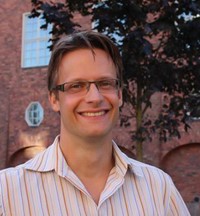Learning packages for sustainability
With our learning material, you can focus on teaching while we focus on creating effective teaching tools and keeping them updated.
Our sustainable development learning packages consist of comprehensive educational materials for active learning using a flipped classroom approach, with a focus on key competencies for sustainable development. Each learning package focuses on a specific area within sustainable development and includes:
- Access to the Snowflake Education Toolkit, our digital platform with video lectures, reflection tasks, and homework that can be given to your students as preparation before seminars, and as follow-up tasks after seminars
- PowerPoint files for conducting game-based seminars
- Instructor's guides to help you set up homework and conduct seminars
- Educational games that serve as interactive tools for sustainability education
- Supplementary seminar materials for active learning in sustainable development, which together with the games provide a complete solution for sustainability education
- Digital versions of the games: for some of the games, these are almost identical to the classroom version, while others have a slightly different but corresponding interactive seminar activity; all learning packages can therefore also be conducted online.
Learning Packages:
- Values Thinking: Introduction to sustainable development and Agenda 2030, as well as normative competency regarding sustainability issues.
- Systems Thinking: Introduction to complex systems (feedback loops, resilience, and tipping points), ecosystem services, renewable resources, and the concept of the tragedy of the commons.
- Earth's Climate & Climate Change: Introduction to the fascinating climate system of the Earth and to climate change, as well as discussions about climate communication.
- Life Cycle Thinking & Circular Economy: Introduction to life cycle thinking, circular economy, and the concept of critical materials, as well as discussions about sustainable production and consumption.
Structure and Applications
If using the complete learning package, preparatpry self-studies account for approximately 5 hours per student, seminar material for 3-4 hours of seminar time is included, and the follow-up assignment takes up to approximately 5 hours per student. The entire learning package is intended to correspond to approximately 0.5 credits in the European HE system (~12-13 hours of study), but the material can be used flexibly, and one can add or remove material.
Several learning packages can be combined, either to build a complete course module in sustainable development, or to sprinkle them into a set of different course moduls s through an education program. They can be used to create a sustainability progression track throughout the program. It is also possible to build an entire university course entirely based on material in a number of learning packages as well as complementary material that we can also provide.
The learning packages were originally developed for higher education and the material is suitable for an introduction to sustainability at both basic and advanced levels. With only minor modifications, it is also excellent for both high school and doctoral level as well as within professional training.
Contact us today
Would you like to get inspiration on how your organization can develop its competence in sustainable development? We would be happy to provide a sustainability training at your location (in person or virtually), or a workshop where we demonstrate our games, web platform, and other interactive tools for delivering sustainability courses that inspire.
Reviews
What do our users think? Some voices from university educators

Dr. Cristina Al-Khalili Szigyarto
Director of Studies, School of Biotechnology / Royal Institute of Technology (KTH, Sweden)
"A fantastic tool for students to learn in a safe environment, but also to stimulate their creativity. Students get to understand the subject and using terms with a deeper knowledge. They love the games."

Professor Richard Fenner
Director of the Mphil program in Engineering for Sustainable Development / University of Cambridge (UK)
"The games are a great way for students to begin thinking about how to approach seemingly intractable problems. They are also a great way of simulating, compressing and engaging with possible real world events that could not be achieved in actual practice."

Associate Professor Henrik Kusar
Course Director in Chemical Technology / Royal Institute of Technology (KTH, Sweden)
"The pedagogical value of the games is to challenge students to think, and to take different viewpoints. My approach for teaching sustainable development is that there are no simple answers - and this is what this framework gives my students. Students learn much faster and deeper."

Dr. Meeri Karvinen
University Teacher / Aalto University (Finland)
"Students have a really good time while playing the games, which help them to move away from simple solutions. This framework is based on a really good alternative pedagogy as compared to conventional lectures. Students think this is really fun and engaging, and it combines well with the academic content. They feel that they get new perspectives on sustainability."

